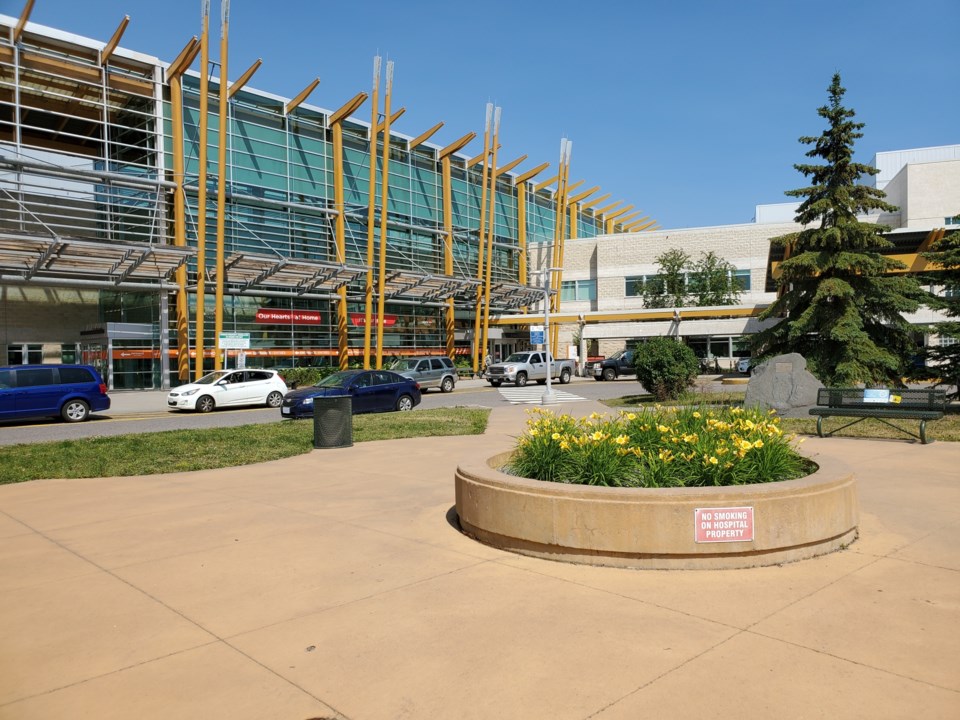THUNDER BAY — Thunder Bay Regional Health Sciences Centre has received recognition from the oversight body for cardiac, stroke and vascular care in Ontario.
According to the hospital, CorHealth Ontario has given it top marks among the province's hospitals for its performance in the area of ST Elevation Myocardial Infarction (STEMI) care.
STEMI is a form of heart attack that can cause death if not treated quickly.
CorHealth Ontario states that the timely restoration of blood flow through a blocked artery requires a speedy diagnosis, transportation and treatment when STEMI is diagnosed or suspected. The timeliness of the intervention is measured in minutes.
Approximately one-third of acute coronary syndromes are classified as STEMI.
"The goal is time. The faster a cardiac event is discovered on an electrocardiogram (ECG), the better the treatment outcome," said Meaghan Sharp, director of cardiovascular sciences and the chief nursing executive at Thunder Bay Regional HSC.
The hospital is the only one in Northwestern Ontario that can treat a patient's heart through angioplasty, a procedure in which an artery narrowed due to plaque build-up is widened, usually with a balloon. In most cases, one or more stents are used to help support the artery.
"Thunder Bay is leading the way when it comes to patient care and we are the best in Ontario due to the hard work, dedication and amazing talents we have in the region," said hospital CEO and President Rhonda Crocker-Ellacott.
She cited the importance of teamwork.
The STEMI program includes first responders, paramedics, emergency department doctors and nurses, interventional cardiologists, cardiac catheterization lab nurses, and administrators.
Sharp noted that "Our patients receive care from a paramedic and in many cases have a first responder as their first medical contact due to our geography. Once the paramedics are with the patient, they are able to perform a 12-lead ECG to determine the severity of the heart attack – activating Code STEMI protocols."
The Code STEMI program links Superior North EMS paramedics and an interventional cardiologist within the Thunder Bay district 24 hours a day, seven days a week.
